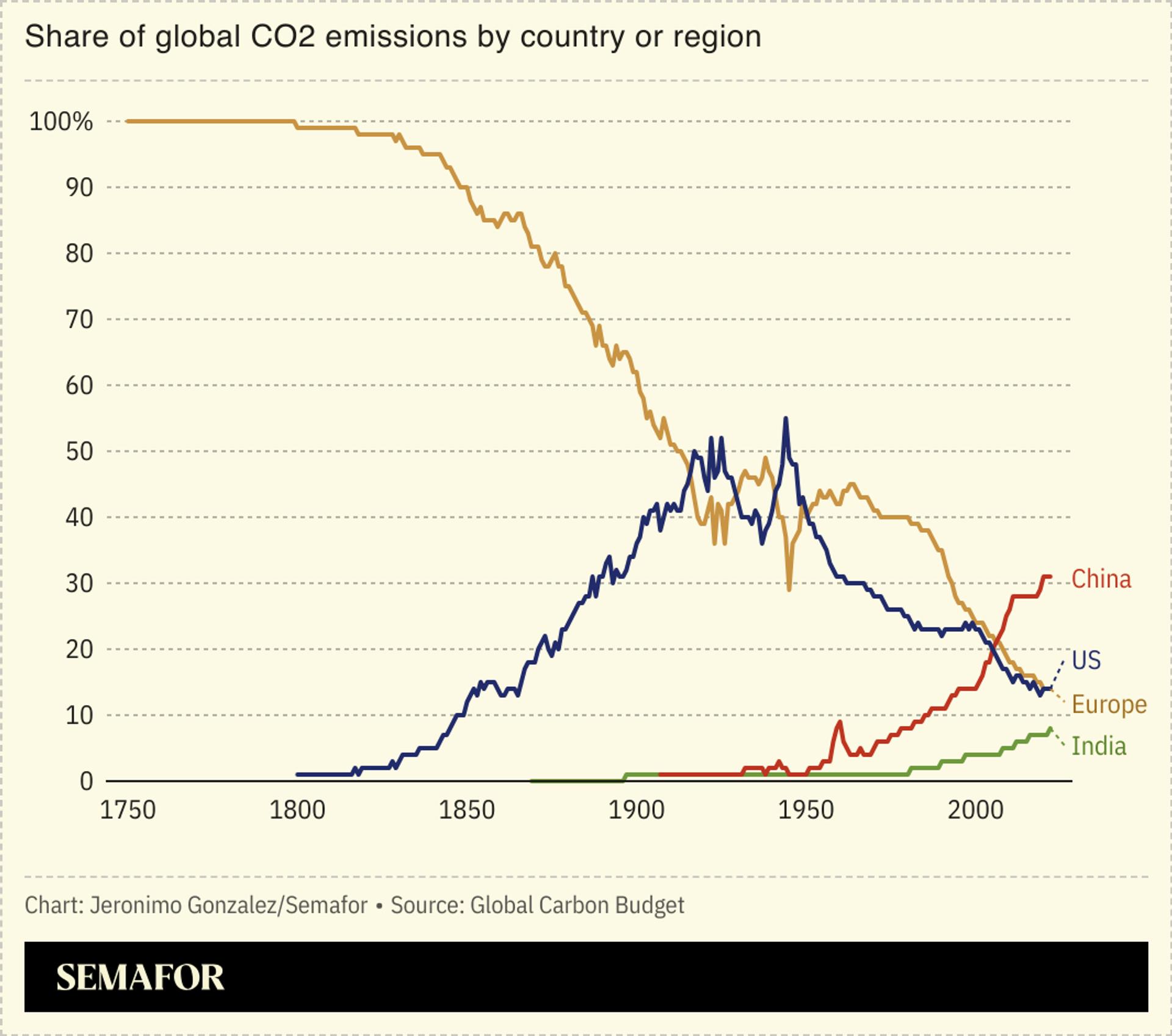The News
2024 could mark the beginning of a global decline in carbon emissions, two major research firms said.
Both BloombergNEF and Climate Analytics said rapid uptake of renewable energy and a corresponding decline in fossil fuel use, especially in China, could mean that 2023 represented a peak in emissions, although we won’t know for a few months.
The global economy is greening fast: Norway became the first country to have more electric cars than petrol ones on its roads, and 14 of the world’s biggest banks will today announce expanded backing for nuclear energy projects to support COP28 pledges to triple the world’s capacity by 2050.

SIGNALS
Renewable giant China is still ‘addicted’ to coal
China is “a renewable giant addicted to coal,” El País wrote: It’s become the global leader in green energy production, but it was also responsible for almost all of the world’s new coal power construction in 2023. New coal construction reached an eight-year peak in China last year while slowing down everywhere else. This discrepancy has spurred doubts about the country’s commitment to the green transition, El País argued, but one expert told CNBC that coal is still needed to ensure “energy security” in the country, and others have said that fossil fuel is critical because of the “unreliable and intermittent nature of renewable energy sources.”
The US should draw clean energy lessons from the 1948 Marshall Plan
The US-China trade war has consequences on climate too — and the US needs a “clean energy Marshall Plan” to reduce the impacts of the rivalry, Brian Deese, the director of the National Economic Council wrote in Foreign Affairs. If the US helped countries most impacted by global warming in the way it aided nations’ World War II reconstruction efforts through the 1948 Marshall Plan, countries that now rely on China and its cheap products could diversify their ecosystem, making their green transition more affordable.“The idea that China produces everything and everybody else just relies on them is not a viable economic or political strategy,” Deese told Semafor’s Tim McDonnell.
AI’s negative climate impact and positive innovation
Artificial intelligence could be a blessing and a curse in climate issues. Several AI climate-focused startups that have cropped up recently could help with tracking global methane emissions, detecting and preventing forest fires, and supporting the mining of minerals critical to the green transition, among other things, NPR reported. But data centers required for some AI technology to work consume enormous amounts of energy and water, and could become the largest global carbon emitters, a tech expert wrote in the MIT Sloan Management Review. “AI’s contributions to solving the climate crisis can outweigh its negative climate impacts, but only if the AI industry adopts practices that emphasize ESG sustainability,” the expert wrote.

